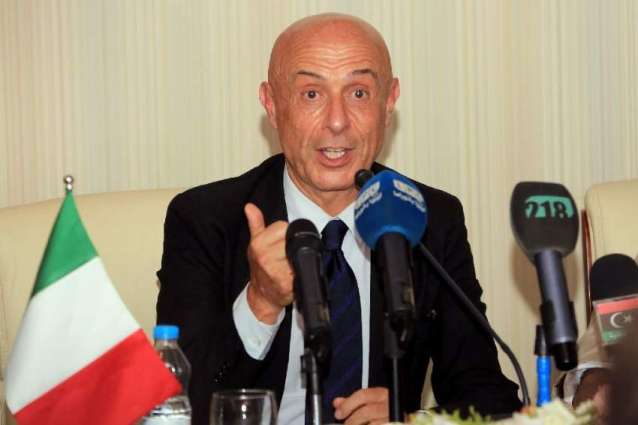The implementation of the Berlin conference's results on Libya is hampered by the fact that "backdoor diplomacy" is still strong on the ground in Libya, running in parallel to the official diplomatic level and making it necessary for any new conference on the crisis there to find ways to reinforce the previous decisions instead of developing new documents, Italian lawmaker Marco Minniti has told Sputnik in an interview
GENOA (Pakistan Point News / Sputnik - 11th February, 2020) The implementation of the Berlin conference's results on Libya is hampered by the fact that "backdoor diplomacy" is still strong on the ground in Libya, running in parallel to the official diplomatic level and making it necessary for any new conference on the crisis there to find ways to reinforce the previous decisions instead of developing new documents, Italian lawmaker Marco Minniti has told Sputnik in an interview.
On January 19, Berlin hosted an international conference on the Libyan reconciliation that was attended by 16 states and entities, including Russia, Turkey and the United States, as well as both the UN-backed Libyan Government of National Accord (GNA) and the rival Libyan National Army (LNA). The conference resulted in a joint communique in which the signatories pledged to refrain from assisting either of the warring parties and to observe the arms embargo on Libya.
"The real problem is not about what is written in the document, and the main problem is not to agree on a new document but to be sure that in Libya the 'backdoor diplomacy' phase is over, because as long as there is a double track of co-existing official diplomacy and 'backdoor diplomacy,' I am afraid that in such sensitive contexts as in Libya, things will never be resolved. Therefore, the target of Berlin-2 [meeting] must be to check what Berlin-1 [meeting] decided and to reiterate the need to observe the decisions that were taken," Minniti, who is a member of the Italian parliament from the Democratic Party and one of the most prominent Italian politicians dealing with the Libyan issue, said.
According to the lawmaker, the key point of conferences like the one in Berlin is not what is written in the final documents but what is being done for implementing the decisions. This is what is called "backdoor diplomacy," which means that after signing a general agreement, the signatories do what they find most appropriate on the ground, according to the Italian politician.
"It is clear for everyone that at this moment, the Berlin conference, which provided a positive and, in my view, a very useful merging of positions, seems to be in big difficulties. In other words, the outcome of Berlin-1 is facing difficulties. We need to work together to achieve this goal, to move from a truce to a ceasefire and then to develop a line that would allow the parties [of the peace process] to give voice to the Libyans," Minniti added.
Minniti also said that the participation of new countries, Greece for example, in the possible second Berlin meeting on Libya might be needed, even though the country is not directly involved in the conflict.
"Greece is highly involved in the Eastern Mediterranean issues, as there is an open case of oil extraction near Cyprus and oil concessions related to it. European countries, in this case, Italy and France, ENI and Total, and Turkey, are also deeply involved in the Libyan case, especially in the light of the Turkish-Libyan maritime agreement, and it is clear that these are the issues that need to be resolved," Minniti added.
The next Berlin conference on Libya at the level of foreign ministers is scheduled to take place in mid-March, according to Germany's foreign minister, Heiko Maas.
Since the end of the first Berlin conference and the adoption of its communique, the United Nations Support Mission in Libya has repeatedly expressed concerns over the violations of the arms embargo that persist in Libya despite the positive results achieved at the summit.
On February 4, UN Secretary-General Antonio Guterres said he was deeply frustrated with the truce violations and called the ongoing violence in the country a scandal.




